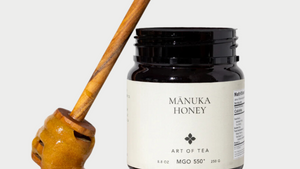Aromatherapy has gained popularity as a natural approach to support various health concerns, including anxiety, stress, and attention difficulties. While essential oils can provide therapeutic benefits, they should be used with caution, particularly in children diagnosed with Attention Deficit Hyperactivity Disorder (ADHD). Children with ADHD may have unique sensitivities to certain essential oils, and not all oils are appropriate for their use.
This blog post explores which essential oils are not recommended for children diagnosed with ADHD, along with the reasons why, providing parents with essential knowledge to ensure safe and effective aromatherapy practices.
Understanding ADHD and Aromatherapy: What to Know Before You Start
Before delving into the essential oils to avoid, it’s crucial to understand how ADHD affects children and how aromatherapy might interact with their symptoms. ADHD is a neurodevelopmental disorder characterized by inattention, hyperactivity, and impulsivity (Danielson et al., 2018). Managing the condition often involves a combination of medication, behavioral therapy, and lifestyle adjustments, including complementary practices like aromatherapy.
Aromatherapy works by stimulating the brain through the olfactory system, triggering emotional and behavioral responses. While many essential oils can help reduce anxiety and promote focus, others may exacerbate symptoms of ADHD or interfere with medications commonly prescribed for the disorder, such as stimulants (Arnold et al., 2014).
Essential Oils to Avoid for Children with ADHD
1. Peppermint (Mentha piperita)
Peppermint oil is well-known for its refreshing and stimulating properties. However, for children with ADHD, peppermint oil may act as an overstimulant, exacerbating hyperactivity and impulsivity. While it can boost focus and alertness, children who are already prone to hyperactivity may find their symptoms heightened.
Why to Avoid:
Peppermint contains menthol, which can act as a stimulant on the central nervous system, potentially leading to restlessness or irritability in children with ADHD (Evans and Rood, 2019).
What to Use Instead:
Lavender (Lavandula angustifolia) offers calming effects without overstimulation, making it a better alternative for supporting focus and relaxation.
2. Eucalyptus (Eucalyptus globulus)
Eucalyptus oil is commonly used for respiratory issues, but for children with ADHD, it can have unintended effects. Like peppermint, eucalyptus is a stimulating oil, and it can increase hyperactivity or lead to difficulty sleeping, especially if used in the evening. This oil may also interact with stimulant medications like Adderall or Ritalin.
Why to Avoid:
Eucalyptus contains eucalyptol, which can overstimulate the brain and potentially worsen ADHD symptoms in children (Mannucci et al., 2018).
What to Use Instead:
Roman Chamomile (Chamaemelum nobile) is a safe and calming alternative that supports relaxation and can help children wind down before bedtime.
3. Rosemary (Rosmarinus officinalis)
Rosemary oil is praised for its memory-enhancing properties, but it is another essential oil that may overstimulate children with ADHD. While rosemary is sometimes used to improve cognitive function, its stimulant effects can worsen impulsivity and hyperactivity in children who are already struggling to focus.
Why to Avoid:
Rosemary contains high levels of 1,8-cineole, which can increase mental stimulation and potentially make hyperactivity more pronounced in children with ADHD (Bowles, 2003).
What to Use Instead:
Frankincense (Boswellia carterii) provides grounding and calming properties that help balance emotions and reduce anxiety without overstimulation.
4. Basil (Ocimum basilicum)
Sweet basil essential oil is often used to enhance mental clarity and focus, but it may not be suitable for children with ADHD. The stimulating nature of basil can lead to increased nervous energy and restlessness in children prone to hyperactivity.
Why to Avoid:
Basil contains estragole and methyl chavicol, which can contribute to overstimulation and hyperactivity (Arnold et al., 2014).
What to Use Instead:
Vetiver (Vetiveria zizanioides) is known for its calming and grounding effects, making it a great option for children with ADHD who need help managing impulsivity and maintaining focus.
5. Thyme (Thymus vulgaris)
Thyme oil is powerful and stimulating, often used for respiratory issues and to boost immune function. However, its strong stimulating properties make it unsuitable for children with ADHD, as it can increase anxiety and hyperactivity.
Why to Avoid:
Thyme contains thymol, a compound that can overstimulate the nervous system, leading to increased impulsivity and anxiety in children with ADHD (Millichap and Yee, 2012).
What to Use Instead:
Cedarwood (Cedrus atlantica) has a more balancing and calming effect, making it a safer choice for children with ADHD. It can help soothe anxiety and promote restful sleep.
6. Clove (Syzygium aromaticum)
Clove oil is highly stimulating and contains eugenol, which can irritate the nervous system. While clove oil is sometimes used for its warming and energizing effects, it is too strong for children with ADHD and can lead to increased restlessness and hyperactivity.
Why to Avoid:
Eugenol, found in clove oil, is a potent stimulant that can worsen ADHD symptoms by heightening hyperactivity and impulsive behavior (Findling et al., 2008).
What to Use Instead:
Sweet Orange (Citrus sinensis) provides a mild uplifting effect without overstimulating the nervous system, making it a better option for boosting mood and promoting calm.
Aromatherapy Safety for Children with ADHD: General Guidelines
-
Dilution Is Key: Always dilute essential oils before using them on children. A 1% dilution (1 drop of essential oil per teaspoon of carrier oil) is generally safe for children with ADHD.
-
Patch Test First: Children with ADHD may have sensitive skin or reactions to certain essential oils. Perform a patch test before applying any oil topically to ensure it doesn’t cause irritation.
-
Limit Diffusion Time: For children with ADHD, limit aromatherapy diffusion sessions to 15-30 minutes to avoid overstimulation.
-
Avoid Internal Use: Essential oils should not be ingested, especially in children. Ingestion can lead to toxicity and adverse reactions, particularly when combined with medications.
-
Consult a Healthcare Provider: If your child is taking medications for ADHD, consult a healthcare provider before using essential oils to ensure there are no potential interactions.
Food List to Support ADHD Management
In addition to aromatherapy, diet plays a significant role in managing ADHD symptoms. Here’s a list of ADHD-friendly foods to support focus and calm:
Foods to Include:
- Omega-3 Rich Foods: Fatty fish like salmon, chia seeds, flaxseeds, and walnuts.
- Protein: Lean meats, eggs, beans, lentils, and Greek yogurt to stabilize blood sugar levels and support focus.
- Complex Carbohydrates: Whole grains, sweet potatoes, and brown rice to provide steady energy without spikes in hyperactivity.
- Leafy Greens and Vegetables: Spinach, kale, and broccoli are nutrient-dense and support overall brain health.
Foods to Avoid:
- Artificial Food Dyes and Additives: Processed snacks and sodas that contain artificial coloring, like Red No. 40, and preservatives like sodium benzoate (Nigg et al., 2012).
- High Sugar Foods: Sugary cereals, candy, and soda can lead to rapid blood sugar spikes and crashes, worsening ADHD symptoms (Millichap and Yee, 2012).
- Caffeine: Energy drinks, sodas, and even chocolate may contribute to overstimulation in children with ADHD (Arnold et al., 2014).
Activities to Support Children with ADHD
Incorporating calming and focus-enhancing activities into daily routines can complement aromatherapy and diet for children with ADHD:
-
Yoga and Mindfulness: Yoga and mindfulness exercises help improve focus and reduce stress (Evans and Rood, 2019). Simple poses and breathing exercises can help children ground themselves and calm their minds.
-
Physical Exercise: Regular physical activity, such as running, swimming, or biking, is essential for burning off excess energy and improving focus (Arnold et al., 2014).
-
Structured Play: Activities like puzzles, building blocks, and board games encourage concentration and help children with ADHD develop patience and focus.
Conclusion
Managing ADHD in children requires a holistic approach that includes careful attention to diet, physical activity, and therapeutic interventions like aromatherapy. However, not all essential oils are appropriate for children with ADHD. Parents should avoid using stimulating oils such as peppermint, eucalyptus, rosemary, basil, thyme, and clove, which can exacerbate hyperactivity and impulsivity. Instead, focus on using calming oils such as lavender, Roman chamomile, frankincense, cedarwood, and sweet orange.
By understanding which essential oils to avoid and incorporating ADHD-friendly foods and activities into your child's routine, you can create a more supportive and balanced environment that promotes focus and calm.
Disclaimer
This blog post is for informational purposes only and does not constitute medical advice. I am not a licensed medical professional. Please consult with your healthcare provider before using essential oils or making any changes to your child’s treatment plan.
References
- Arnold L. E., Lobstein T., eds. (2014). Dietary treatments for ADHD. Child Adolesc Psychiatry Ment Health 8(5): 23-35.
- Bowles, E. (2003). The Chemistry of Aromatherapeutic Oils. (3rd ed.). Cengage Learning Australia.
- Danielson, M. L., et al. (2018). Prevalence of parent-reported ADHD diagnosis and associated treatment among U.S. children and adolescents, 2016. J Clin Psychiatry, 79(2), 207-219.
- Evans, S. W., & Rood, C. (2019). Behavioral interventions for children and adolescents with ADHD: A focus on evidence-based practices. Clin Child Fam Psychol Rev, 18(1), 1-10.
- Findling, R. L., et al. (2008). St. John's Wort in children with ADHD: A randomized controlled trial. JAMA, 299(22), 2633-2641.
- Mannucci, C., et al. (2018). Clinical application of essential oils in respiratory ailments. Evidence-Based Complementary and Alternative Medicine, 2018.
- Millichap, J. G., & Yee, M. M. (2012). The diet factor in ADHD. Pediatrics, 129(2), 330-337.
- Nigg, J. T., et al. (2012). The association between food dyes and ADHD: A meta-analysis. J Am Acad Child Adolesc Psychiatry, 51(1), 86-97.



